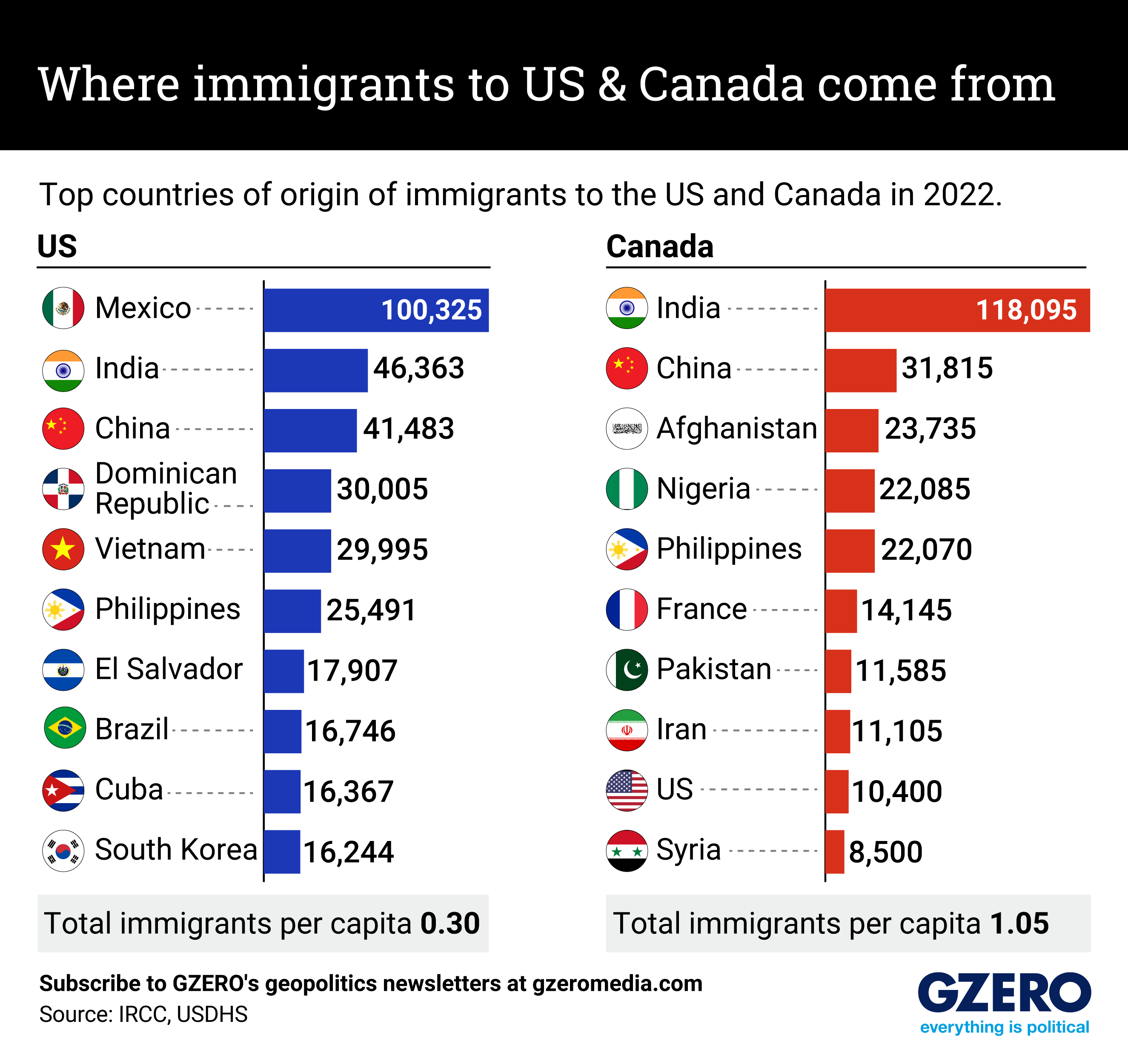November 09, 2023
When it comes to immigration policies, Canada and the United States often go in opposite directions. Ottawa’s per capita total towers over Washington’s – 1.05 to 0.30 – because it strategically positions immigration as a cornerstone of its economic growth plan. In short, it bolsters the labor force.
But last week, we told you that 44% of Canadians (up from 27% last year) now think that immigration levels are too high, the biggest change in sentiment pollster Environics has seen in more than four decades. While this has prompted a new government cap on newcomers, the cap is high: 500,000 a year.
In stark contrast, US immigration policies are subject to the winds of changing administrations, and immigrants are often cast as a strain on the economy, limiting the number of jobs and resources available for Americans.
So where do most immigrants to the US and Canada come from? India tops the list for Canada, with the number of Indians who have become permanent residents in Canada tripling since 2013. India is No. 2 on the US list, beaten by more than twice as many migrants from Mexico.
We look at the top 10 countries of origin for immigrants to both countries.
From Your Site Articles
More For You
- YouTube
In this Quick Take, Ian Bremmer examines what may come next in the US-Israel war with Iran as the Trump administration signals significantly larger military operations ahead.
Most Popular
FILE PHOTO: Canadian Prime Minister Mark Carney and India's Prime Minister Narendra Modi shake hands before posing for a photo during the G7 Leaders' Summit in Kananaskis, in Alberta, Canada, June 17, 2025.
REUTERS/Amber Bracken/File Photo
Indian Prime Minister Narendra Modi and Canadian Prime Minister Mark Carney struck a series of deals during a meeting in New Delhi on Monday, including a 10-year nuclear energy deal under which Canada will provide India with uranium.
A satellite image shows black smoke rising and heavy damage at Iranian Supreme Leader Ayatollah Ali Khamenei's compound, following strikes by the United States and Israel in Tehran, Iran, on February 28, 2026.
Pleiades Neo (c) Airbus DS 2026/Handout via REUTERS
Supreme Leader Ali Khamenei is dead, the conflict is spreading, and US President Donald Trump still isn’t clear on who he wants to run Iran.
Shipping in the world’s most crucial oil chokepoint has nearly ground to a halt after at least four tankers were targeted in Iran’s retaliation to US and Israeli strikes on Saturday.
© 2025 GZERO Media. All Rights Reserved | A Eurasia Group media company.
